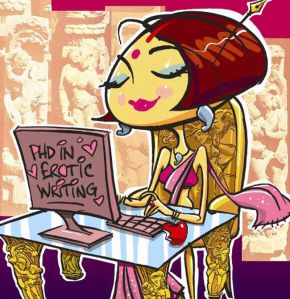Your body has a memory,
It always remembers.
who touched it
who caressed it
who admired it
who tolerated it
who undervalued it
who was overwhelmed by it
who ignored it
who nourished it
who kissed it
who was kissed by it
who taught it something
who made it forgetful
who embraced it
who ghosted it
who was honest to it
who hid secrets from it
who created memories
who established nightmares
who loved it
who loved it more
Your body has a memory
It always remembers.
Tag Archives: writing
Not there yet
Have you ever mourned for something
that hasn’t departed yet?
Prepping your body, mind and soul for it
a season about to change
an aging parent
a relationship reaching its expiration date
a child on the threshold of hitting puberty
a secret soon to come out of the closet
All inching closer to the end
But not quite there yet.
On missing hugs
I miss hugs.
Not necessarily the romantic kind.
Or even the platonic kind.
The kind that you give for no other reason
except to offer and receive that embrace.
One that lasts longer than 3 seconds.
One where you can smell each other’s tension and sighs,
happiness and empathy,
courage and exhaustion.
One that tells you everything will be okay.
One that isn’t a half-hug, a side-hug, a hurried hug,
a hey-good-to-see-you hug,
a cursory hug,
an obligatory hug.
One that emerges out of nowhere.
In the middle of a conversation.
In a bid to break a silence.
At a crowded place. Amidst crowded sentiments.
One that doesn’t need a reason.
One that was given or received
for the sole purpose of making each other feel safe, secure, heard.
When was the last time you hugged someone?
Or received a hug like that?
That wasn’t from a spouse or a partner?
That wasn’t romantic or platonic?
Do you miss it?
Or did you never experience it?
Orgasmic blush
Shopping for groceries
with someone you love
Smelling the froth of
freshly brewed café au lait
Watching a couple embracing
in the misty fog
Reading the lines of a book
that was recommended by a lover
Rereading your lover’s old
letter and poems
Being kissed by the sun on a
particularly cold morning
Discovering a crumpled note in an old, discarded,
unwashed pair of jeans
Striking off a pending task
from your to-do list
Burning the mouth while eating
coz it just tastes so darn good!
Catching up on a conversation with an old friend
just from where we last left
Recalling the lyrics of an old song that had
gotten lost in the memory lanes
Seeing your mother smile
as you make a fresh, new cooking mistake
Looking at your reflection on the mirror
as you apply cherry red lipstick
Of hunting and devouring erotica
When I was working on finalizing my dissertation topic during my Masters, I was quite apprehensive about what I would choose. I knew that the topic I was about to choose would eventually be something that I would be voluntarily giving two years of my life to. It had to be exciting, interesting, and maybe even controversial to keep me glued and engaged. Sex was an obvious answer that fulfilled all these criteria. And since I had graduated specializing in literature in English, erotic literature emerged as an option I was more than happy to pursue.
While I knew that it is contemporary erotica that I wanted to focus on, the reason for stressing on writing that was recent was to test how much I could relate to the contextual realities. It is only after I finalized my area of research that I began hunting for writings around sex, preferably fictional writings, in English language emerging from South Asian countries. Of course, it was much more difficult than I had imagined. This wasn’t romance or tragedy or even tragicomedy. This was erotica coming from a land that looked at sex as a tabooed, sinful and hushed subject. Of course, this is also the land that gave us the ‘Kama Sutra’ and the Khajuraho temples. It is this hypocrisy in allowing some and dismissing other manifestations of the erotic that I sought to address through my research. And my first hurdle began in looking for the texts.
A visit to the bookstore resulted in judgmental looks, sniffed remarks and, eventually, ‘Fifty Shades…’. Some bookstores proudly offered me newer translations and versions of ‘Kama Sutra’ again, while some others simply refused to entertain my preposterous demand. A simple Google search came to my rescue. I discovered Tranquebar Press whose four volumes of erotica had emerged in recent years*. Each of these anthologies consisted of fictional pieces penned by writers from South Asia. I was relieved as well as surprised at its easy presence and access on the web but complete ignorance among bookstores (I am talking about two years ago, maybe things have changed now). I ordered all four volumes online and I was more than happy to devour them for the (ostensible) purpose of conducting research. While the genre of erotica is burdened by several challenges — not being seen as ‘literary’ enough, charged of being cheap, trashy and pornographic (the thin line between what gets constructed as erotic and acceptable, and, pornographic and dismissive remains a crucial question to explore), accused of objectifying its characters, especially women—the books that I read as part of my thesis writing were both brave exceptions and happy clichés.
While conducting my research, I divided these stories on the basis of themes. But the one theme and aspect that I had a keen eye for was that of sexual fantasies and the kinds of sexual fantasies that these fictional worlds not only allowed but also gratified in a justified manner. Interestingly enough, ‘Blue’, The Tranquebar Book of Erotic Stories from Sri Lanka, which doesn’t claim to be heterosexual (and neither is), has scope for sexual experimentation and fantasies only in those stories that move out of hetero normativity. Marti’s ‘Room 1716’ is the story that describes lesbian fantasies of the protagonist, while also incorporating the use of a vibrator (a sex toy) to enhance the sexual experience—a privilege otherwise not given to other heterosexual couples in this anthology. Again, it is in ‘Me and Ms J’, a story about lesbian desire, where the protagonist fantasies a sexual relationship with her teacher. Sexual fidelity takes a hike in Shehan Karunatilaka’s Veysee which is a story about a married man who seeks sexual pleasure with a sex worker. There isn’t much light thrown as to why he seeks sex outside marriage but the story does present a view of Sri Lankan society and its perception around sex. The country is represented as one where sex is available ‘freely’ only if you possess good looks, good money and power. Of course, sexual fantasies are not limited to the realm of the man. In ‘Undercover’, Ameena Hussein narrates the story of a married woman trapped in a physically and mentally unsatisfying marriage. This story brings in the element of sex as an avenue of escape when coupled with exploring sexual desire outside marriage.
In ‘Blue’, sexual fantasy is linked to either homosexuality or tasting the forbidden (in the case of ‘Undercover’ and ‘Veysee’). ‘Close, Too Close’ (The Tranquebar Book of Queer Erotica), on the other hand, gives immense space to fantasies. Perhaps in keeping with the stereotypes associated with the queer world being bold, daring and experimental (the flip-side being unnatural, shameful and confused), ‘Close, Too Close’ has employed and given space for several sexual fantasies, including using a vibrator, dreaming of intercourse with a minor boy (inter-generational sex), queer games, conference sex and threesomes. Perhaps, unconventionality and varied fantasies go well with the definition of what it means to be ‘queer’ – weird. People play queer games (‘All in the game’), a middle-aged gay man –fantasises about having sex with an underage Kashmiri boy (‘Dreams and Desires in Srinagar’), two women engage in conference sex (‘Conference Sex’), a gay man and a straight feminist (as she calls herself) engage in a threesome with a seemingly heterosexual guy (‘Screwing with Excess’).
In ‘Alchemy’, The Tranquebar Book of Erotic Stories II, ‘Mouth’ by M. Svairini explores the many sexual fantasies, including those that may be categorized as queer, set in the context of sexual role play and orgy. Stylistically, the story stands out in its use of several literary tools like analogy and personification. Participants involved in the orgy are all named after specific erogenous zones like the mouth, the cunt, the cock and the ass. The choice of the body part is extremely interesting and perhaps even deliberate in being both accurate and ambiguous at the same time.
In ‘Electric Feather’, The Tranquebar Book of Erotic Stories, Sheba Karim’s ‘Heavenly Ornaments’ explores the shame and dangers associated with being public or open about one’s sexuality or sexual desires. This shame gets doubled if it is that of a woman and more so if that of a single, deserted or divorced woman. Concepts of purity and impurity are highlighted. Another story that was striking was ‘The First Time’ by Meenakshi Reddy Madhavan’s that traces the coming of age of its protagonist, Aditya, a twenty-seven-year-old advertising executive, who goes through a journey of sexual discovery. It narrates the journey of its protagonist from his dorm days, when he accidentally enters a room of two boys helping each other masturbate. Disturbing as it may have been to him, Aditya longed to replicate what he just saw as the pleasure that he observed in the two boys seemed genuine and true. However, later, he understands, through watching porn, that masturbation was not the only way of attaining sexual ecstasy. The story is not only significant in foregrounding sex education and sexual education; it also highlights the importance of one’s peers in shaping (almost permanently) one’s attitude towards sex.
It is interesting to note, here, how something deemed as private and intimate is actually shaped in one of the most public and open fashions – in peer group discussions, by hearing about it from friends and acquaintances and by observation in popular culture and social media. This is exactly why this genre gains importance. Erotic literature serves a culturally and socially significant role not necessarily in opening up sexual possibilities for its readers but by giving that required space for the reader to embrace and be comfortable with his/her sexual desires – something that is otherwise openly denied in accordance with social dictums. Erotica may or may not question normative ideas about sex and sexual experimentation. However, in its very act of talking about sex in the most direct and detailed manner in a deeply prudish and hypocritical world, it plays a transgressive role.
*The anthologies I studied were as follows:
- Joshi, Ruchir ed. Electric Feather: The Tranquebar Book of Erotic Stories. New Delhi: Tranquebar Press, 2009.
- Hussain, Ameena ed. Blue: The Tranquebar Book of Erotic Stories from Sri Lanka. New Delhi: Tranquebar Press 2011.
- Karim, Sheba ed. Alchemy: The Tranquebar Book of Erotic Stories II. New Delhi: Tranquebar Press 2012.
- Meenu and Shruti ed. Close, Too Close: The Tranquebar Book of Queer Erotica. New Delhi: Tranquebar Press 2012.
All these texts have published erotic stories in the form of prose, poetry and graphic art. The contributors are from India, Sri Lanka, Pakistan and Bangladesh.
This post was originally published on TARSHI‘s E-magazine ‘In PlainSpeak’ here.



